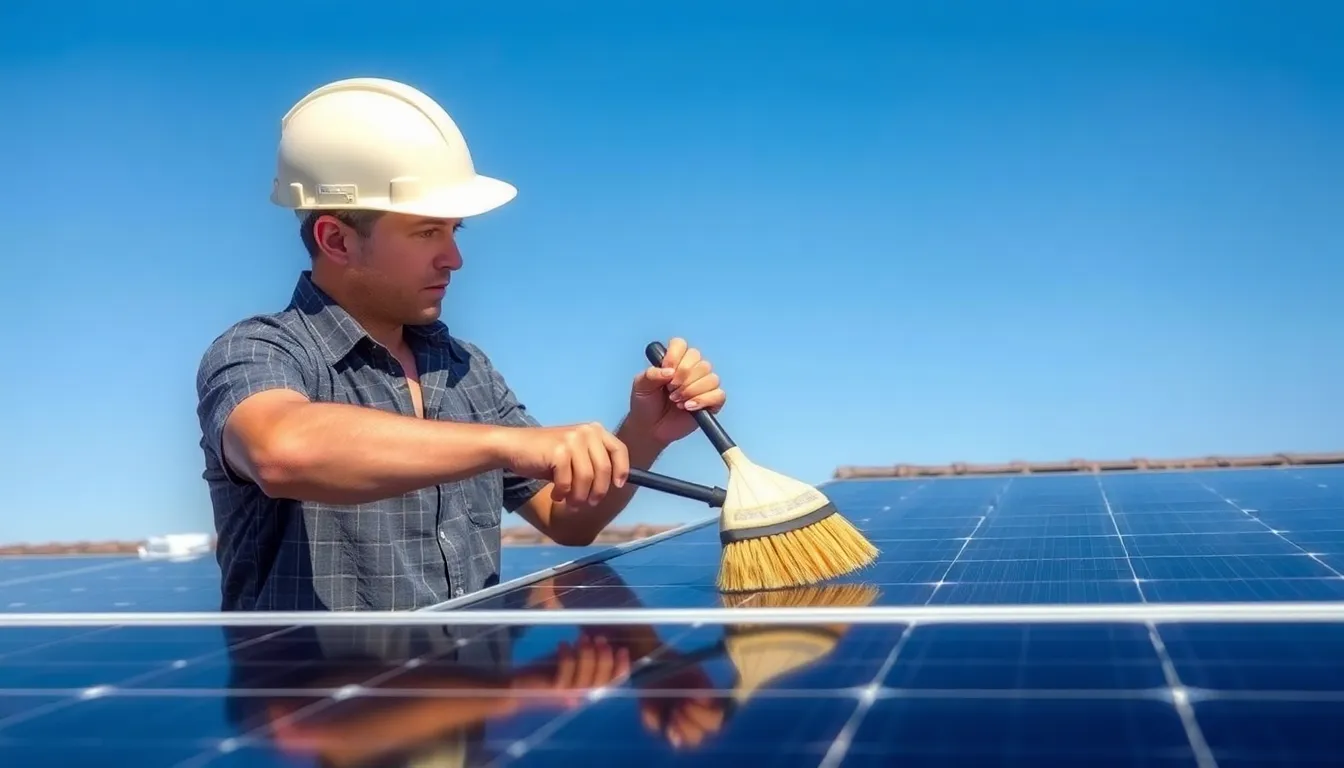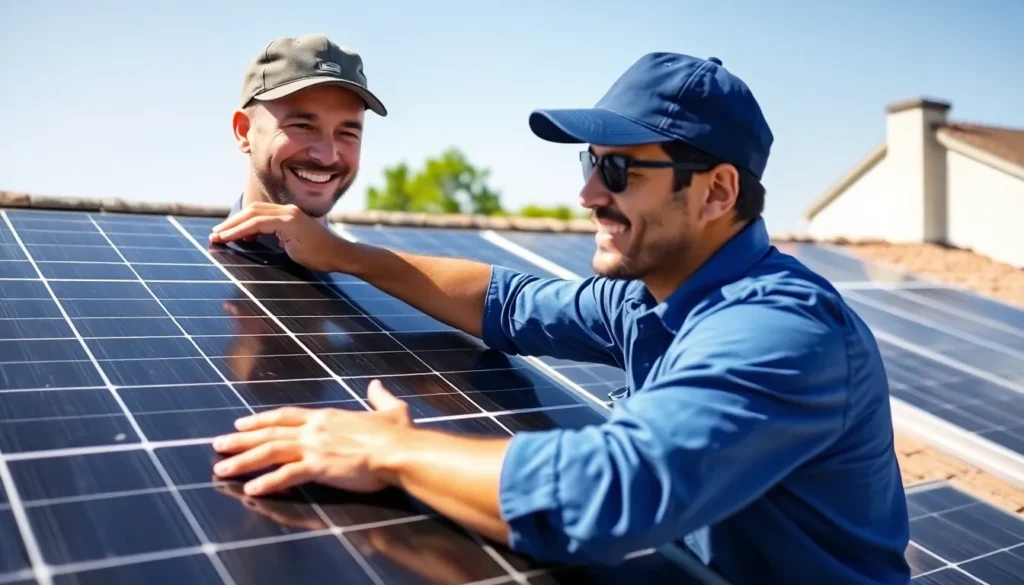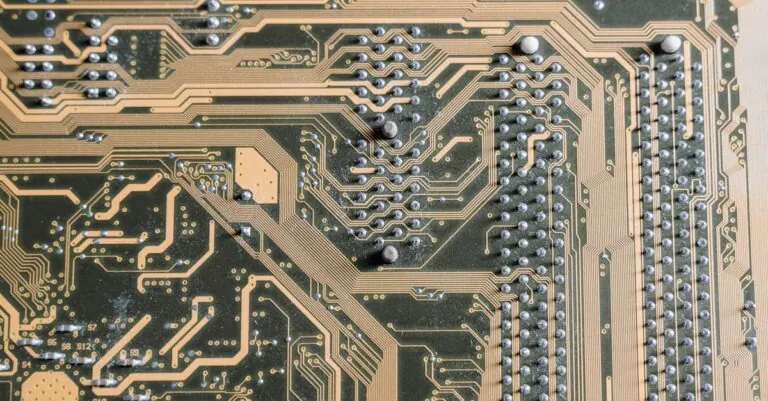Solar panels are like the sun’s favorite dance floor, soaking up rays to power homes and businesses. But just like any good party, they need a little upkeep to keep the energy flowing. Dust, dirt, and bird droppings can turn those shiny panels into dull energy suckers. Who wants that? Not anyone who enjoys lower energy bills!
Table of Contents
ToggleImportance Of Solar Panel Cleaning
Regular cleaning plays a crucial role in maximizing solar panel efficiency. Clean solar panels generate more energy, lowering electricity costs for homes and businesses.
Impact On Efficiency
Dust accumulation can significantly impact energy production. Even a thin layer of dirt reduces sunlight exposure, diminishing overall efficiency by up to 25%. Regular cleaning maintains optimal performance, ensuring panels capture as much sunlight as possible. It’s essential to recognize that environmental factors, such as pollen and bird droppings, exacerbate the problem. Keeping panels clean provides a reliable energy source that households and businesses depend on.
Long-term Benefits
Maintaining clean solar panels promotes longevity and reduces maintenance costs. Regular upkeep helps prevent damage caused by grime buildup, which can lead to potential repairs. Lower repair costs translate to increased savings over time. Additionally, well-maintained panels retain their efficiency for extended periods, ensuring maximum energy production. Investing in cleaning not only boosts performance but also enhances the overall value of solar installations. Efficient panels ultimately contribute to a sustainable energy future.
Methods Of Solar Panel Cleaning

Keeping solar panels clean is crucial for maintaining efficiency. Various cleaning methods exist to ensure optimal performance.
Manual Cleaning Techniques
Manual cleaning techniques involve physically removing dirt and debris. Homeowners often use soft brushes or microfiber cloths to avoid scratching the panel surface. Soap and water mixture can efficiently tackle stubborn stains, while a gentle rinse removes soap residues. Regular cleaning occurs every few months or after significant weather events, like storms. Professional services can also be hired for thorough cleaning, especially for large installations. Manual methods provide control and flexibility in achieving desired cleanliness.
Automated Cleaning Systems
Automated cleaning systems offer a high-tech alternative for maintaining solar panels. These systems typically include brushes or water jets that clean surfaces without human intervention. Schedule automation assists in regular cleaning at predetermined intervals, promoting consistent performance. Though initial investment costs may be higher, long-term savings in maintenance justify the expenditure. Many models allow users to customize cleaning cycles based on specific environmental conditions, ensuring optimal efficiency. Automated systems particularly benefit large solar farms or installations in hard-to-reach areas.
Best Practices For Solar Panel Cleaning
Maintaining solar panels requires a careful approach. Adopting effective cleaning practices contributes significantly to efficiency and longevity.
Frequency Of Cleaning
Regular cleaning should occur every four to six months. In high-dust areas or after storms, cleaning might require a more frequent schedule, ideally every two to three months. Factors like local weather conditions and the presence of trees should also influence this frequency. Heavy soiling from bird droppings or dirt can decrease energy output rapidly. Considering that a thin layer of dust can reduce efficiency by 25%, timely cleaning plays a crucial role in optimal performance.
Recommended Cleaning Products
Using soft brushes or microfiber cloths prevents scratches on solar panels. Gentle dish soap mixed with water effectively tackles stubborn stains without damage. Additionally, eco-friendly cleaning solutions support environmental sustainability while maintaining panel integrity. Avoid abrasive cleaners or rough materials that can harm the surface. Some manufacturers also recommend specific cleaning products compatible with their systems. Always check manufacturer guidelines for best practices to ensure thorough and safe cleaning.
Common Misconceptions About Solar Panel Cleaning
Misconceptions about solar panel cleaning can lead to improper maintenance practices. Understanding these myths helps maximize efficiency and extends panel longevity.
Myths vs. Facts
Many believe rain washes away dirt on solar panels. In reality, rain may not remove stubborn debris like bird droppings. Some think cleaning isn’t necessary for new installations. However, dust accumulation can impact even new systems’ performance. Another common myth suggests that cleaning can scratch panels. Using soft brushes or microfiber cloths prevents this issue. Regular cleaning maintains efficiency rather than negates it, proving crucial for energy production.
Understanding Risks
Ignoring solar panel maintenance poses risks that can affect performance. Dust and debris significantly lower energy production, sometimes by up to 25%. Panels may face damage from grime buildup, leading to costly repairs. Professional services help eliminate risks associated with improper cleaning practices. Avoiding abrasive cleaners is essential, as they can scratch surfaces and void warranties. Following manufacturer guidelines ensures safe cleaning, preserving both efficiency and panel integrity. Regular upkeep ultimately protects the investment in solar technology.
Maintaining solar panels is essential for ensuring they operate at peak efficiency. Regular cleaning not only maximizes energy production but also extends the lifespan of the panels. By removing dirt and debris, homeowners and businesses can significantly reduce energy costs and enhance the overall value of their solar investments.
Utilizing appropriate cleaning methods and adhering to best practices is crucial for effective maintenance. Whether opting for manual techniques or automated systems, prioritizing regular upkeep can lead to long-term benefits. Embracing these practices contributes to a sustainable energy future while ensuring solar installations perform optimally in any environment.



